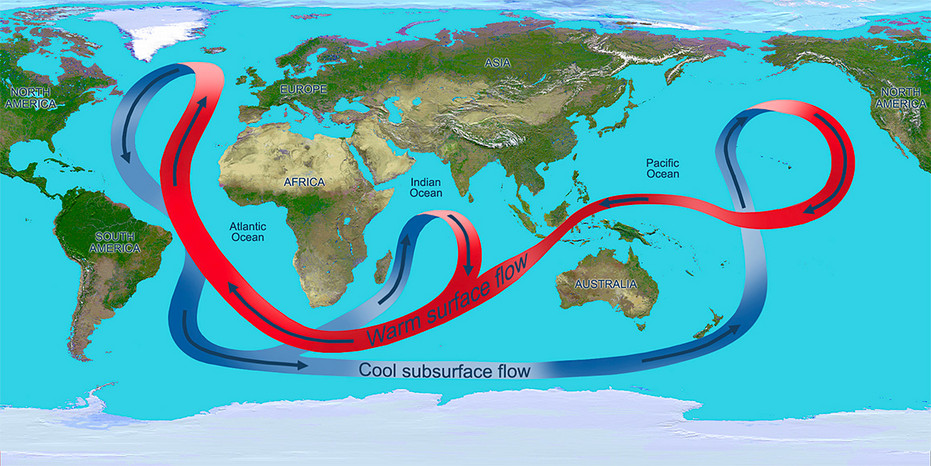There are two primary articles I want to highlight today pertaining to a couple of topics I have covered regularly over the years. After that, I will throw at you a several headlines about the auto industry and the environmental impact of climate change.
Let’s start with economics. I have been writing about for a couple of decades now that there is not one credible study (actually, I’m not aware of ANY study or research) that shows that doing what is good for the environment isn’t good for the economy overall. Yes, shutting down coal plants hurts that industry and the people who depend on it for a living. But, more, better and healthier jobs are created in the clean energy business that more than offset that economic loss.
Once again this fact is reiterated in a recent article.
From Bloomberg Green
U.S. Environmental and Health Rules Pay for Themselves—and Then Some
The regulations’ benefits outweigh their costs. That means we’re not maximizing their potential.
April 22, 2022
https://www.bloomberg.com/news/articles/2022-04-22/u-s-environmental-and-health-rules-pay-for-themselves-and-then-some?srnd=green&sref=pD2ECzY4&mc_cid=700e06c8c1&mc_eid=8f4760cc57
Cutting pollution has so many benefits that it’s hard to quantify them all. It’s difficult for scientists to establish the link between pollutants and impacts on health, and for economists to translate those impacts into dollars. Actual benefit estimates, then, are often best thought of as a conservative lower bound. The costs, meanwhile, are typically assumed to be higher than they turn out to be, since analyses are based on current rather than better and, thus, cheaper future technologies. Compliance with most rules is typically less costly than it’s assumed to be at the time the rule is passed.
benefits still exceed costs, almost by definition, because otherwise the rules wouldn’t have been passed in the first place.
When comparing major agency rules on a simple ratio of benefits to costs, those adopted by the Department of Health and Human Services (HHSA) and the Environmental Protection Agency (EPA) come out on top, and that’s been true now for at least two decades.
As the research develops on ocean currents, I have reported to you the unfolding data and understanding. Last week another article was published on this topic. It reiterates the developing belief that by warming the global temperature we are most likely going to influence, and change, the ocean currents that circulate around the world and create the weather patterns upon which we’ve built our modern societies. One easy way to picture this is how the warm Gulf Stream in the Atlantic flowing north creates weather in London that is warmer and milder than in my home town, Chicago. But if you look at a map, you will notice that London is at a latitude that is way north of Chicago’s. In fact, London is on the same general latitude as Nova Scotia.
We have built all of our societies infrastructure, including our system of agriculture that feeds the entire population, on the current weather patterns that have been pretty stable for the last 10,000 years. And that 10,000 years is coincidental with the rise of farming that allowed for the end of the hunter/gatherer lifestyle and the development of towns and cities and thus modern society as we now know it. Disrupting this relatively stable weather system will wreck havoc on our way of life.
From E&E ClimateWire
A Major Ocean Current is Weakening. Is it Climate Change?
April 27, 2022
https://subscriber.politicopro.com/article/eenews/2022/04/27/a-major-ocean-current-is-weakening-is-it-climate-change-00027952

An illustration of the Atlantic Meridonal Overturning Circulation. New research suggest the AMOC is being influenced by climate change. NASA
A gigantic ocean current, which transports heat around the globe and helps regulate weather patterns throughout the North Atlantic, appears to be slowing down. In fact, recent researchhas found that it’s currently at its weakest point in the last 1,000 years.
Climate models indicate that human-caused global warming should cause the current to continue slowing over time. If the world keeps on warming, the current’s behavior eventually should tip outside the bounds of natural variability, flowing into uncharted territory.
Exactly how quickly that process will unfold, and how strong the slowing will be, is still a matter of scientific debate. But it’s a serious question.
Officially known as the Atlantic Meridional Overturning Circulation, or AMOC, the current ferries heat between the equator and the Arctic like a giant liquid conveyor belt. As a result, it’s largely responsible for the mild weather conditions enjoyed by much of the North Atlantic region, including Europe and the eastern United States.
If the current continues to slow, it could disrupt weather patterns throughout the midlatitudes. Parts of the North Atlantic may cool, while areas farther south along the U.S. East Coast may get warmer.
In fact, some data suggests these processes already are starting to happen.
There has been a great deal written about how climate change is impacting our planet. While YOU may be looking around you and not seeing too much different, you should be aware that this is not the case for an increasing portion of the planet’s inhabitants both human, animal and plant life. Here are some recent headlines which report what is currently already occurring. Brace yourself because this is just the beginning of major alterations of our norms.
From E&E Climate Wire
Heat Wave Scorches India’s Wheat Crop, Snags Export Plans
May 2, 2022
https://subscriber.politicopro.com/article/eenews/2022/05/02/heat-wave-scorches-indias-wheat-crop-snags-export-plans-00028888
India is the world’s second-largest producer of wheat
record-shattering heat wave in India has reduced wheat yields
daytime temperatures peaking at 114.08 degrees Fahrenheit. Temperatures breached the 113 F mark in nine other cities.
But it was the heat in March — the hottest in India since records first started being kept in 1901 — that stunted crops.
From Bloomberg Green
Megadrought Threatens California Power Blackouts This Summer
Low hydropower means more gas, and possible blackouts.
April 28, 2022



